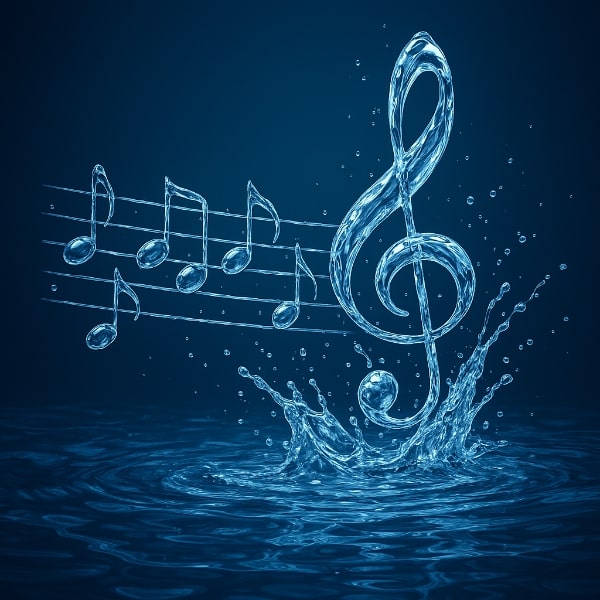A barque is a three-masted sailing ship in its original definition, but by the end of the 19th century, it had become downgraded to refer to a small boat or even a rowing boat for inland waters.
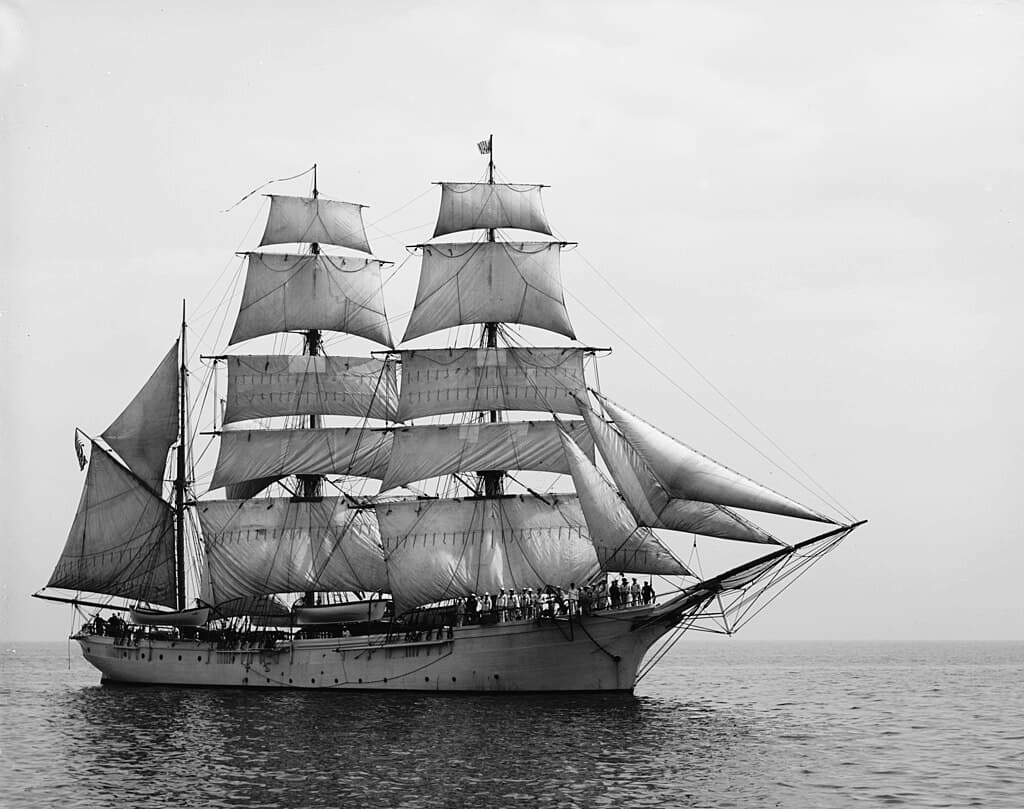
Three-masted barque, US Revenue Cutter Salmon P. Chase, ca 1907 (Library of Congress)
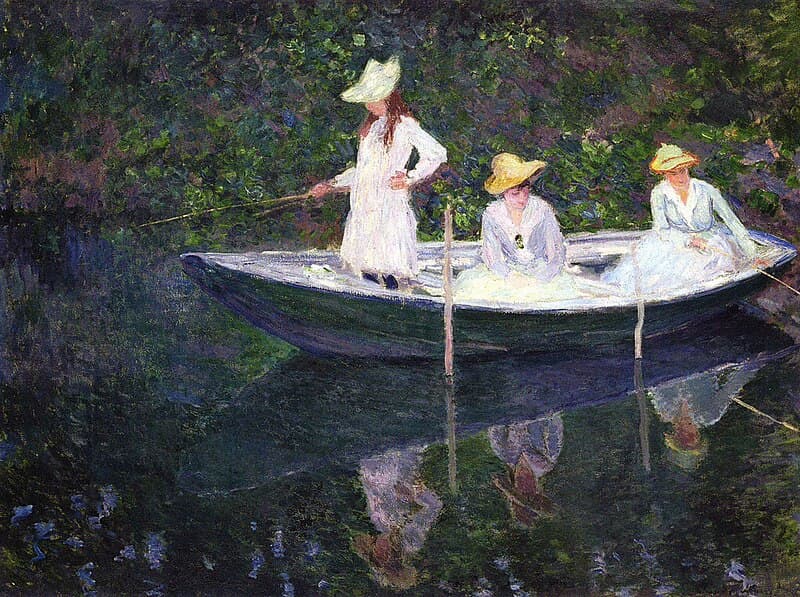
Claude Monet: La barque à Giverny, ca 1887 (Musée d’Orsay)
The idea of a ship on the ocean, subject to the ocean’s calms and furies, inspired composers in a number of ways.
Ravel, in his piano work Miroirs, gives us a barque on the ocean and a tranquil sea. The entire Miroirs collection had each of the 5 pieces dedicated to a member of Ravel’s group of Apaches. Une barque sur l’ocean sweeps us out to sea. In the original piano version, the demands on the pianist are quite technical, having the melodic line sounding through wide-spaced arpeggios. The orchestral version tempers those demands and gives us a different feeling. The sea may start off tranquil, but there always seems to be a hint of darkness and danger, even in its sparkle.
Maurice Ravel: Miroirs – No. 3. Une barque sur l’océan (version for orchestra) (Lyon National Orchestra; Leonard Slatkin, cond.)
In Meyerbeer’s little song, La barque légère, Lise, our heroine, falls in love with Lucas but when his little boat spirits her away from the shore and into the shade of a tree, other things transpire. Too late, Lise discovers that it is a boat propelled by love. Deep notes in the piano imply deep waters, indeed. And a bright and high ‘Ah!’ in the second verse tells us something else is going on. ‘What will my mother say?’!

Weeping Willow
Giacomo Meyerbeer: La Barque légère (Sivan Rotem, soprano; Jonathan Zak, piano)
Set around the Lorelei legend, William Wallace’s grand opera Lurline tells the story of a nymph of the Rhine in a story of the supernatural. Lurline, normally in charge of luring mortals to a deadly whirlpool, has fallen in love with a mortal, Count Rupert. Rupert loves Ghiva, Baron Truenfel’s daughter, but he is poor, and she declines his suit. Rupert goes drinking with his buddies down by the Rhine, and after everyone falls asleep to Lurline’s harp, she appears, places a ring on his finger, and he jumps out of his boat to follow her. His barque sinks.
The magic ring keeps Rupert from drowning, and he enters the King’s underwater treasure cave with Lurline. When Rupert hears the Requiem for his death, he’s saddened, and Lurline decides to return him to his family with some of her father’s treasure. The King agrees.
Rupert returns and Ghiva, who really did love him, is furious that he’s now in love with Lurline. Ghiva takes the ring and throws it into the water. Cue a furious storm scene.
At a party for the returned Rupert, Lurline appears and Rupert says that without her love, he will kill himself. Assassins are coming to kill Rupert and Lurline vanquishes them with her harp and an incantation. Rupert gets Ghiva, and Lurline returns to the depths, having learned of the frailty of mortal love.
As a grand opera, the special effects were the heart of the show, including the scene where the barque sinks under the waves, and Rupert enters Luline’s underwater kingdom.
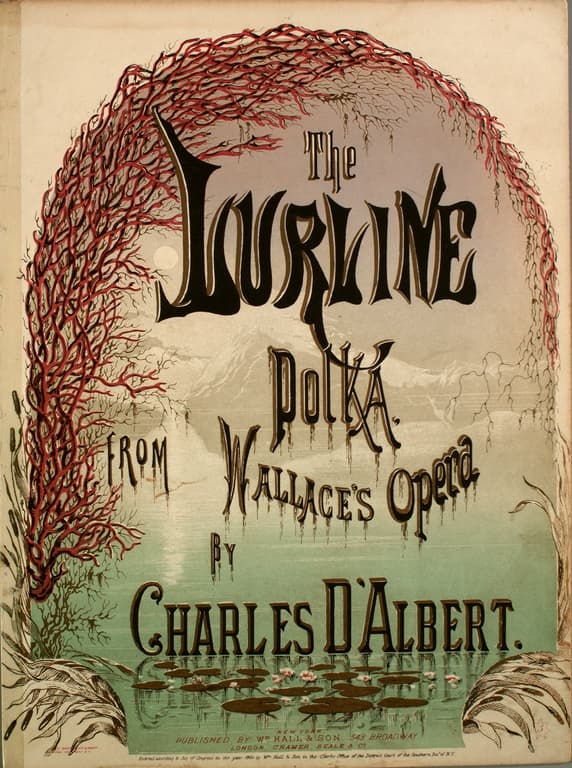
Polka from Lurline, sheet music
William Vincent Wallace: Lurline – Act I Scene 3: Barcarolle: Our barque in silence (Keith Lewis, tenor; Victorian Opera Orchestra; Richard Bonynge, cond.)
In this work for double bass and theorbo (a bass lute), we are on the water, together in the boat and feeling peace.
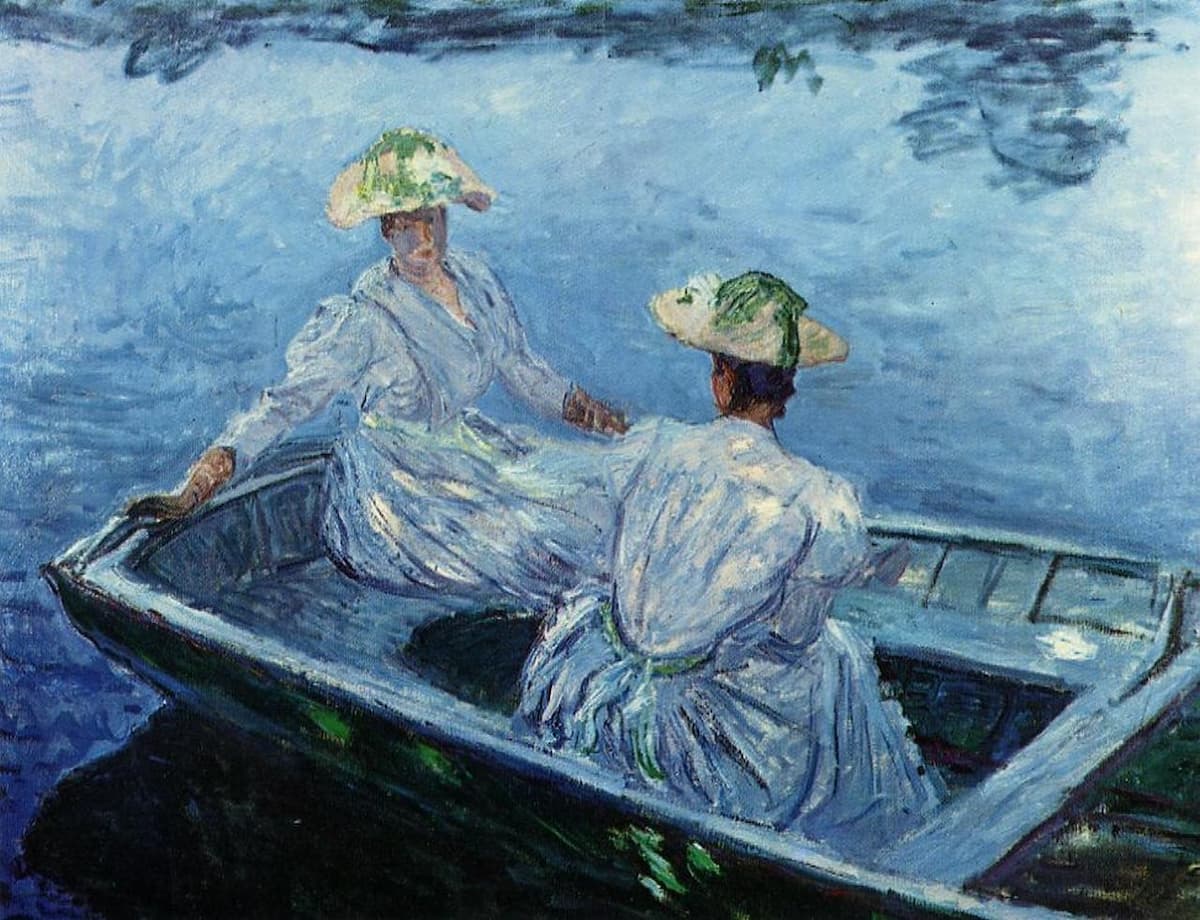
Monet: The Blue Row Boat, 1887 (Madrid, Spain, Thyssen-Bornemisza Museum)
Bruno Helstroffer: La Barque (Laurène Helstroffer Durantel, double bass; Bruno Helstroffer, theorbo)
Set as the last piece of a concept album (Natures), Barque is the end of the day – birds and other elements are all part of the composer’s day. Imaginary landscapes and spaces enter into a dialogue with nature.
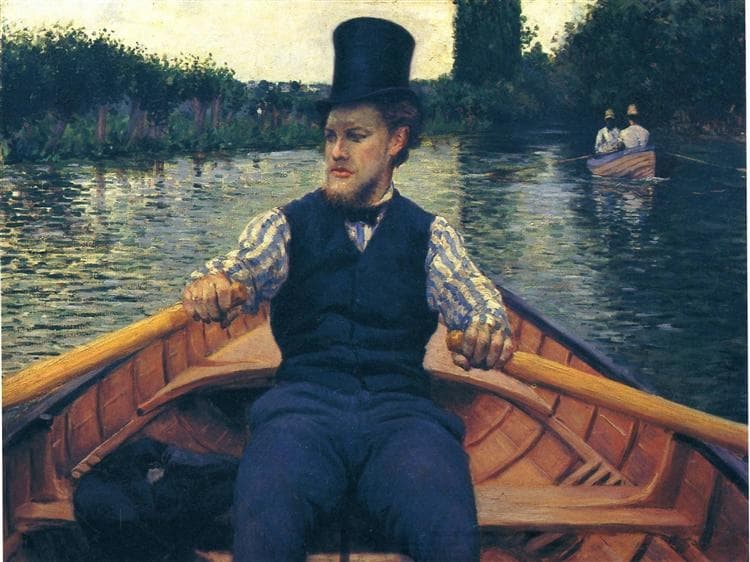
Caillebotte: Rower in a Top Hat, 1878 (private collection)
David Chaillou: Barque (Laura Mikkola, piano)
Enough of ships on the water – how about ships of the sky?
The god of the sun, Râ, travelled on his solar barque, called the Mandjet or the Boat of Millions of Years, during the day time. At night, he travelled on the Mesektet.
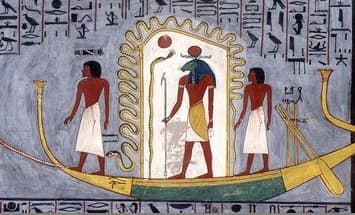
Af or Afu (commonly known as Afu-Ra), the ram-headed form of Ra traveling on the Mesektet barque along with Sia (front of barque) and Heka (back of barque), surrounded by the protective coiled serpent deity Mehen
French composer Thierry Escaich took the idea of the solar barque and made it into a symphonic poem with solo organ. In addition to being inspired by Râ, the composer also found ideas in the works of Olivier Messiaen, as the work was written to celebrate the centennial of his birth.
Thierry Escaich: La Barque solaire (Thierry Escaich, organ; Lyon National Orchestra; Jun Märkl, cond.)
In the futuristic sci-fi movie Tron (1982), our heroes escape the evil Sark on a Solar Sailer, which enables them to reach the Master Control Program and regain control of the programs. Electronic composer Wendy Carlos wrote the soundtrack, which mediated between the outside world and the digital world in a brand new way.
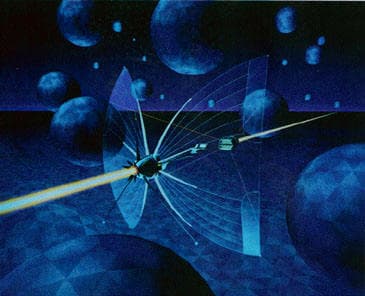
Information International Inc.: Tron, Solar Sailer raster image, 1982
The Light Sailer
Sailing, sailing on rivers and lakes and the deepest ocean….or darkest space. There’s a ship for everyone.
For more of the best in classical music, sign up for our E-Newsletter

